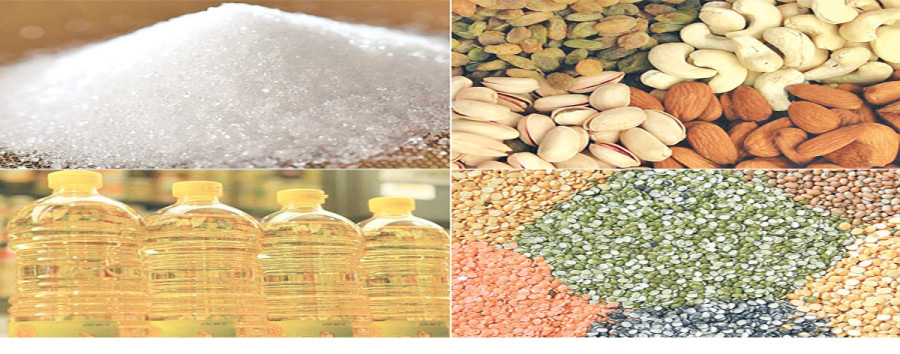Money
Tihar celebrators moan about soaring prices
The Tihar festival has become an expensive affair for many Nepalis as prices of almost all household commodities have skyrocketed with black marketers apparently holding sway.
Suman Bashyal
The Tihar festival has become an expensive affair for many Nepalis as prices of almost all household commodities have skyrocketed with black marketers apparently holding sway.
Daily necessities ranging from cooking oil to sugar, dried fruits to flower garlands and electric lights to pulses have become dearer.
The Kathmandu Valley and other major urban centres across the country have started running out of stock of food products after India’s undeclared trade embargo, and a thriving black market has emerged.
The Department of Commerce and Supply and the District Administration Office have admitted that rampant black marketing was taking place in different parts of the country, and that no effective monitoring mechanism has been put in place.
For instance, customers are being made to pay Rs180 to Rs280 per litre for imported soybean oil against the official market price of Rs125 to Rs135. Sugar costs Rs80 to Rs 90 per kg while the actual retail price is Rs 62. Likewise, prices of rice, beaten rice, pulses, flour, cumin and coriander have jumped Rs5 to Rs50 per kg.
Petrol, which has become very rare these days, is being sold at Rs300 to Rs500 per litre on the black market. A cylinder of cooking gas costs up to Rs8,000, compared to its actual price of Rs3,500 to Rs4,000 including the cylinder.
Hari Narayan Belbase, director of the department which has been assigned to monitor the market, said they had been receiving more than 20 complaints daily during their market inspection tours.
However, the department has not been able to take any action against the retailers and wholesalers who have been overcharging their customers. “We will take action against them once our office resumes.”
Consumers have complained that prices of dried fruits like cashew nut, almond and raisin had jumped Rs 200-Rs300 per kg. Similarly, electric lights and flowers have become 20-30 percent dearer.
According to traders, around 90 percent of the electric lights sold in Nepal come from China, while dried fruits are imported from India, Pakistan, Afghanistan, Iran, Indonesia, the United States and Brazil.
Retailers attributed the price rise to a slump in supply amid increased festival demand while wholesalers said that they had been forced to hike prices due to increased freight costs.
Consumers complained that the price hikes had been done arbitrarily hike. “Every time I place a new delivery order, wholesalers say they are out of stock or quote a high price,” said Navaraj Upadhyay, proprietor of Sungabha Stores at Ratopool.
However, manufacturers said that factories producing oil, sugar, noodles and other food items were mostly located in the strife-torn Tarai in places like Biratnagar, Nawalparasi, Bhairahawa and Birgunj, and that they had been closed down due to the prolonged unrest. The border blockade has also halted shipments of raw materials.
Kumud Dugar, managing director of the KL Dugar Group, said that rising prices during this time of crisis was natural. “We have to pay more for transporting goods,” he said. Domestic production fulfils only 10-20 percent of the country’s edible oil requirement, he added.
The Dugar Group has jacked up the price of sunflower oil to Rs235 per litre from Rs135 two months ago. Similarly, the company has doubled prices of Dhara soybean oil and mustard oil over the space of a month. “In such a difficult situation, the government has been doing nothing to ensure smooth supplies of raw materials and goods.”




 20.12°C Kathmandu
20.12°C Kathmandu














